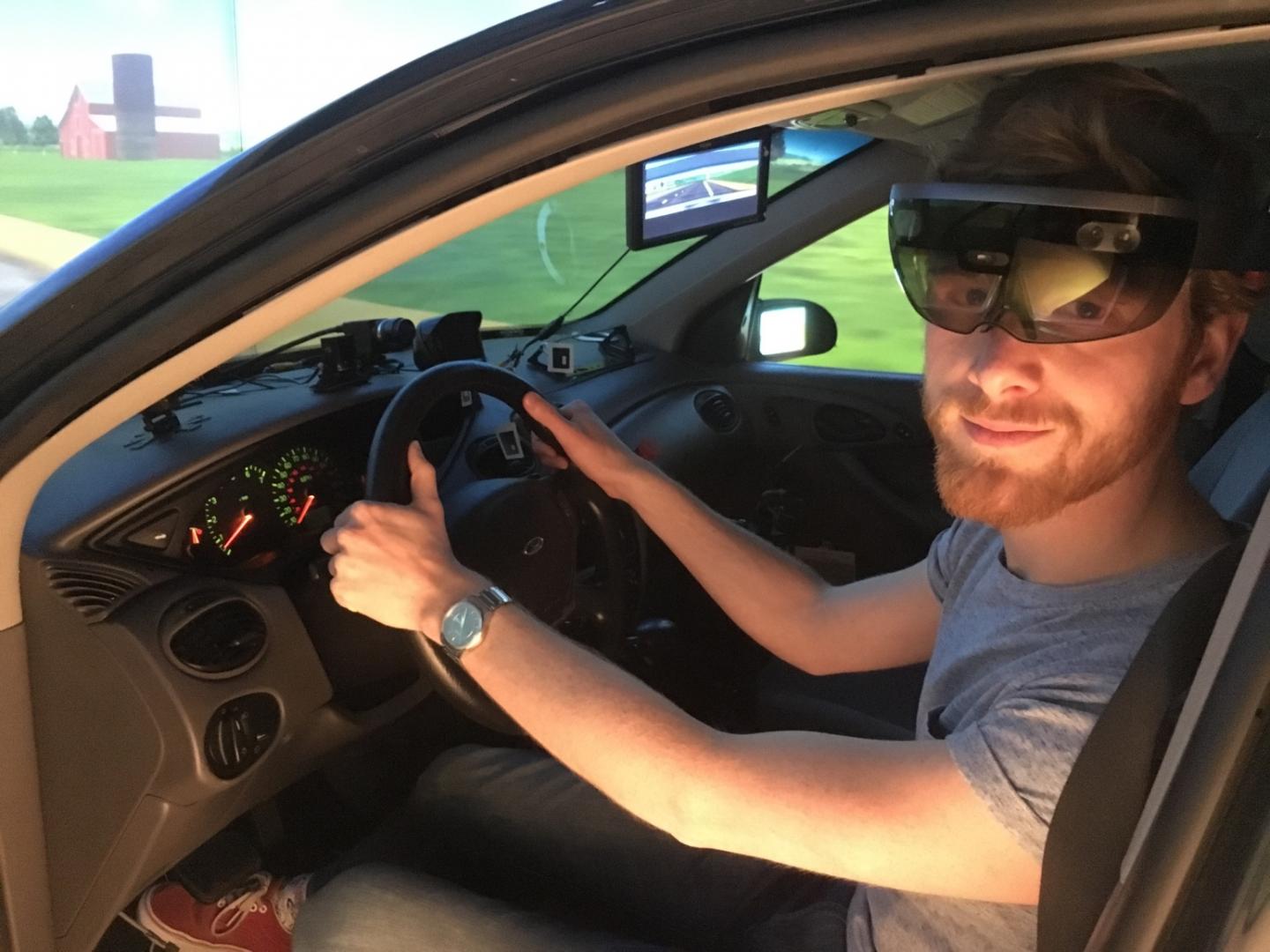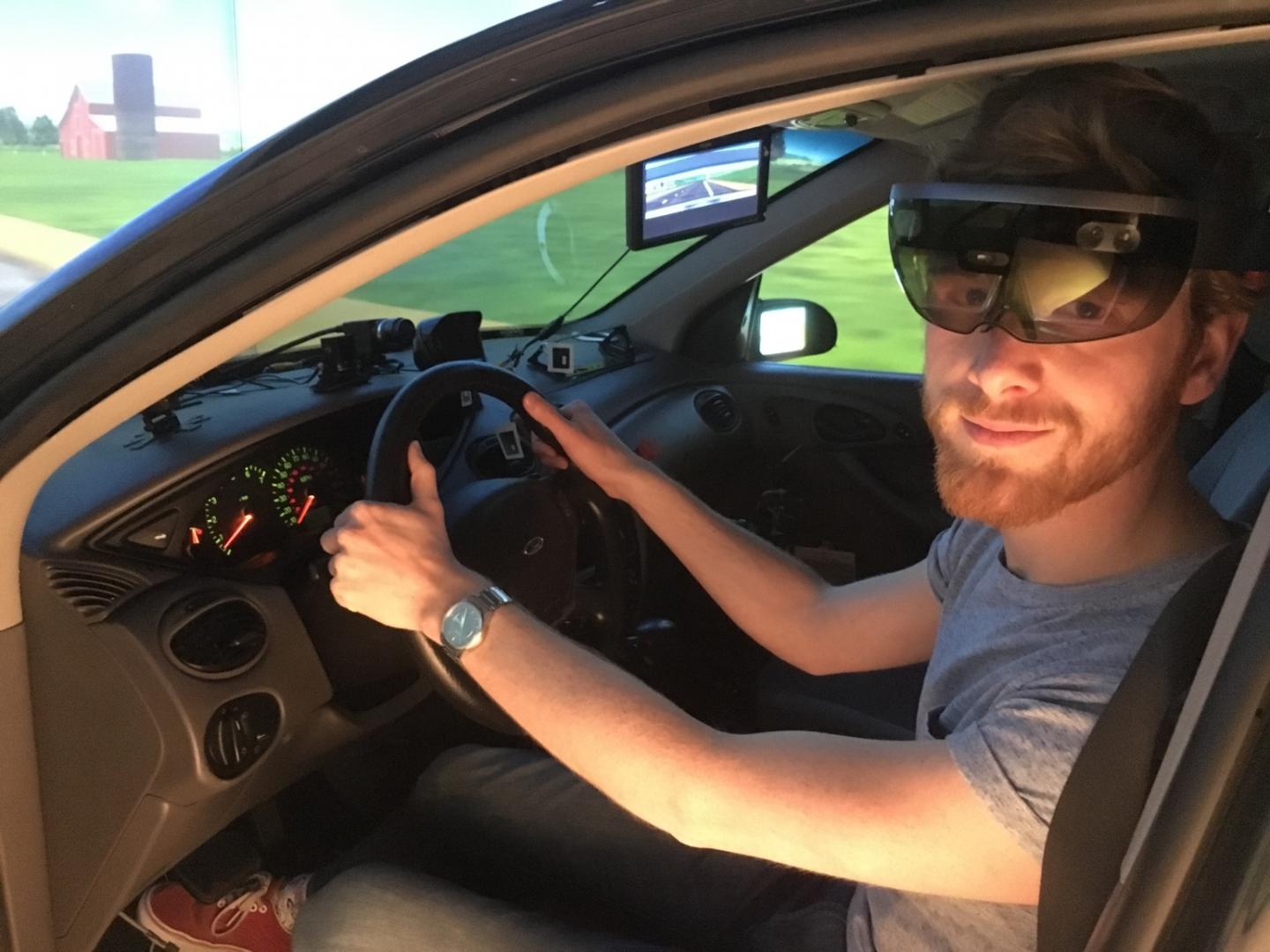
Credit: Andrew Kun
DURHAM, N.H.–As cars become more automated, could commutes become productive–and safe–office hours? That's the question University of New Hampshire researcher Andrew Kun and colleagues from four other institutions will explore with a $2 million grant from the National Science Foundation.
"Millions of people spend nearly an hour of each working day driving to and from work," said Kun, associate professor of electrical and computer engineering. "With automated vehicles, part of this time could be used toward work-related efforts. With this project, we want to understand how realistic current and future technologies might help us work in automated vehicles and increase the productivity and well-being of workers, as well as the productivity and profitability of firms."
To understand how technology can allow commuters to safely combine activities related to work with those related to driving, researchers will develop and test a new multi-interface in-vehicle environment in driving simulators and real vehicles. The project will integrate three types of user interfaces — voice, augmented reality and tangible interfaces — and will generate design guidelines for researchers, practitioners, and policy makers.
"Automated vehicles hold out the promise of significantly improving the safety of driving," said Kun. "They also open up possibilities for using our time in vehicles to rest, to play and to work, because we will not constantly need to focus on the road – the car will do this for us. The question we are asking is this: How do we design the inside of the car to allow us to take advantage of this new-found freedom from driving?"
The grant falls under the NSF's Future of Work at the Human-Technology Frontier (FW-HTF) initiative, one of the agency's 10 new Big Ideas for Future Investment. The FW-HTF cross-directorate program aims to respond to the challenges and opportunities of the changing landscape of jobs and work by supporting convergent research. UNH will lead the four-year project, collaborating with Harvard University, Wellesley College, and the universities of Washington and Wisconsin.
The University of New Hampshire is a flagship research university that inspires innovation and transforms lives in our state, nation and world. More than 16,000 students from all 50 states and 71 countries engage with an award-winning faculty in top ranked programs in business, engineering, law, health and human services, liberal arts and the sciences across more than 200 programs of study. UNH's research portfolio includes partnerships with NASA, NOAA, NSF and NIH, receiving more than $100 million in competitive external funding every year to further explore and define the frontiers of land, sea and space.
###
PHOTO FOR DOWNLOAD: https://www.unh.edu/unhtoday/sites/default/files/media/hololens.jpg Caption: In UNH's driving simulator, a researcher wears Microsoft HoloLens augmented reality glasses, which overlay virtual objects on the "world" shown by the simulator. Courtesy Andrew Kun.
Media Contact
Erika Mantz
[email protected]
603-862-1567
@unhresearchnews
http://www.unh.edu/news
Original Source
https://www.unh.edu/unhtoday/news/release/2018/11/06/unh-receives-federal-funding-create-self-driving-office-future





